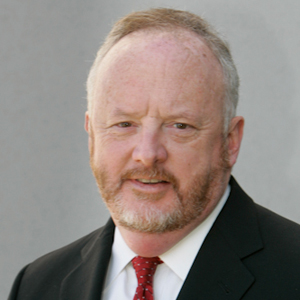
Mar 27, 2024 | Uncategorized
Recent research from Oliver Wyman reveals a significant milestone in American healthcare:
Nearly 10 percent of patients in the U.S. are now receiving care through Accountable Care Organizations (ACOs). This finding underscores the rapid emergence of ACOs, once obscure just a couple of years ago, as substantial players in the healthcare landscape, with the potential to challenge traditional fee-for-service models.
According to Niyum Gandhi, co-author of the study, the perception of ACOs as minor players in healthcare is outdated.
The study, which encompassed various healthcare delivery entities that align with the core principles of ACOs, demonstrates their growing influence. ACOs, characterized by taking responsibility for the overall health needs of a specific population and receiving incentives based on cost savings and quality, are reshaping healthcare delivery.
The proliferation of ACOs is not limited to Medicare programs; commercial ACOs are also on the rise. With Medicare currently hosting 150 ACOs, expected to double in number with the announcement of the next round of participants in the Shared Savings Program, the impact is set to expand further. Notably, many organizations participating in Medicare ACOs eventually extend this model to their non-Medicare patient populations.
Currently, between 25 to 31 million Americans receive care through ACOs, spanning various programs and initiatives. This includes Medicare ACO programs, non-Medicare patients in Medicare-oriented ACOs, and those in non-Medicare ACOs.
The study’s analysis reveals a striking statistic:
45 percent of Americans reside in areas served by at least one ACO, with 19 states boasting a majority of their population covered by ACOs. However, critics contend that many current ACOs fall short of realizing the full potential of the model. Rick Weil, another co-author of the study, acknowledges this disparity but highlights the exceptional performance of leading ACOs. These top-tier ACOs are demonstrating remarkable outcomes, such as achieving zero percent premium increases, challenging longstanding beliefs within the healthcare industry.
As ACOs continue to refine their models and improve performance, they have the capacity to revolutionize the dynamics of American healthcare for the better. This shift promises increased efficiency, better outcomes, and ultimately, improved healthcare experiences for patients nationwide.
Source: www.thestreet.com

Mar 21, 2024 | Uncategorized
Embracing change is often challenging, yet it is crucial for personal growth, professional development, and overall self-improvement. Cultivating a positive perspective when confronted with challenges or changes can aid in adapting to unfamiliar situations, pushing us beyond our comfort zones. This article delves into the importance of adaptability, offering insightful examples of scenarios that necessitate flexibility, along with exercises aimed at enhancing one’s acceptance of change.
Self-Reflection: Assessing Your Attitude towards Change
Consider the following statements and select either A or B:
A) I typically perceive change negatively.
B) I view change as an opportunity for growth.
A) I resist change.
B) I recognize the potential benefits of certain changes.
A) I feel uneasy when plans unexpectedly shift.
B) I find changes in plans invigorating.
A) I struggle with altering my routines.
B) I adapt to routine changes with ease.
A) I feel threatened by challenges.
B) I welcome challenges as opportunities for growth.
A) I often cling to a single solution when problem-solving.
B) I remain open to new information and alternative solutions
If you resonate more with the A statements, you might find change uncomfortable. Conversely, if you align with the B statements, you likely possess a greater capacity to adapt to evolving circumstances. Assessing your beliefs and attitudes serves as a crucial initial step toward fostering adaptability. Fixed thinking may hinder one’s ability to embrace change, whereas cultivating a mindset that embraces discomfort amid uncertainty is conducive to personal growth.
Navigating Uncertainty: Embracing Change as an Opportunity
Undoubtedly, change is accompanied by uncertainty and risk. Whether contemplating a career move or facing unexpected shifts in personal circumstances, uncertainty is inevitable. However, embracing change presents opportunities for growth and learning. For instance, deciding whether to accept a new job entails inherent risks. While success isn’t guaranteed, every experience, whether positive or negative, contributes to personal development. Adapting to change requires experimentation and resilience, gradually diminishing the discomfort associated with uncertainty.
The Pitfalls of Rigidity: A Barrier to Innovation
Rigidity, the antithesis of adaptability, impedes progress and stifles innovation. Consider an executive who habitually dismisses novel ideas, perpetuating stagnant practices and inhibiting innovation within the organization. Such inflexibility fosters complacency and obstructs growth. Conversely, adaptable leaders solicit input from team members, fostering a culture of innovation and embracing change as a catalyst for progress.
The Essence of Adaptability: Navigating Change with Resilience
Adaptable individuals possess a blend of curiosity, problem-solving skills, and persistence, enabling them to thrive in dynamic environments. In today’s rapidly evolving industries, adaptability is a defining characteristic of effective leadership. Leaders who embrace change drive innovation and remain attuned to shifting trends, propelling their organizations forward.
Cultivating Adaptability: A Path to Personal and Professional Growth
Incorporating adaptability into one’s mindset requires a proactive approach. Reflect on recent changes and consider the opportunities they present. Embrace uncertainty with an open mind, recognizing that change serves as a catalyst for growth. By adopting an adaptable mindset, individuals can navigate uncertainty with resilience and seize opportunities for personal and professional development.
Ultimately, embracing change entails shifting our perspective and confronting uncertainty with courage. By cultivating adaptability, we not only navigate life’s challenges with resilience but also foster continuous growth amidst uncertainty.

Mar 14, 2024 | Uncategorized
In the intricate ecosystem of healthcare, the significance of accounting and bookkeeping might seem distant from direct patient care, yet it’s deeply intertwined with the vitality of medical practice. While some practitioners gravitate towards the perceived safety of hospital employment, my experience suggests that this choice can often be a detrimental misstep. Surprisingly, at the core of this misjudgment lies the realm of accounting.
Private practice, despite its medical nature, operates fundamentally as a business entity. Success hinges not only on clinical proficiency but also on astute operations management, accurate financial record-keeping, and strategic decision-making. Neglecting these aspects can steer a practice towards the less favorable option of hospital employment. Therefore, it becomes evident that the seemingly mundane tasks of bookkeeping play a pivotal role in shaping the trajectory of healthcare practices, ultimately influencing the quality of patient care and the sustainability of the medical profession.
Learn More About How Welter Healthcare Partners Can Help!

About Todd Welter • MS, CPC Founder and President of Welter Healthcare Partners
Mr. Welter has over 25 years of healthcare industry experience assisting physicians and other providers, hospitals and other facilities with the business side of medicine. Through strategic planning and analysis, Mr. Welter’s main focus is to strategically increase revenues and profitability in this radically changing health care environment.
Mr. Welter has a Masters Degree in Organizational Leadership from Regis University in Denver where he has had an appointment as affiliate faculty in the School for Professional Studies for over ten years. In addition, Mr. Welter holds a faculty appointment at the University of Denver’s University College. In the Health Care Leadership program he teaches Macro Economics in Health Care and Innovative Strategies and Change in Health Care to graduate students.

Mar 11, 2024 | Uncategorized
Change Healthcare, a leading U.S. health technology company, is making strides in recovering from a ransomware attack it experienced in February. The attack, attributed to the ALPHV ransomware group, disrupted crucial operations, causing billing delays and raising security concerns across the healthcare sector.
After paying a reported $22 million ransom, Change Healthcare is gradually restoring its services. Electronic prescription systems, including Rx Connect, Rx Edit, and Rx Assist, are now operational, with full functionality in electronic prescribing, claim submission, and payment transmission.
The attack’s impact extended beyond Change Healthcare, affecting hospitals, doctors, and pharmacies, leading to cash flow issues. To mitigate these challenges, the U.S. Department of Health and Human Services (HHS) eased Medicare rules, allowing affected stakeholders to claim advance funding.
UnitedHealth Group introduced a temporary iEDI claim submission system to assist clients during the service disruption. Meanwhile, ALPHV, the ransomware group responsible for the attack, appears to be winding down its operations amid suspicions of an exit scam, though law enforcement agencies deny involvement.
The incident underscores the critical need for robust cybersecurity measures in the healthcare sector to safeguard patient data and ensure the uninterrupted delivery of care. As Change Healthcare and the industry recover from the attack, proactive security measures will be essential to mitigate future threats and uphold the integrity of healthcare systems.
The severity of the situation is underscored by reports from the American Hospital Association (AHA), indicating that hospitals are experiencing challenges in various facets of their operations. Processing claims, billing patients, and verifying insurance coverage have been hampered, potentially jeopardizing patient care and the financial stability of healthcare facilities.
The ripple effects of this cyberattack extend beyond immediate inconveniences. Health systems are grappling with an array of issues, including difficulties in verifying patient eligibility, communicating pharmacy prescriptions, and maintaining normal cash flow to sustain operations. The incident highlights the vulnerability of the healthcare sector to ransomware attacks, which have been on the rise in recent years, posing a significant threat to patient privacy and safety.
As the investigation unfolds, concerns persist about the potential long-term repercussions of the attack. While efforts are underway to contain the breach, the incident serves as a stark reminder of the critical importance of cybersecurity in healthcare. Organizations like Welter Healthcare Partners emphasize the need for robust security measures and regular staff training to mitigate the risk of cyber threats such as phishing attacks. As the healthcare industry continues to digitize and rely on technology for essential services, safeguarding patient data and ensuring the integrity of healthcare systems remain paramount priorities.

Feb 29, 2024 | Uncategorized
The demand for efficiency, precision, and a personal touch is high in the healthcare field. Welter Healthcare Partners recognizes the significance of blending personal support with technological innovation in today’s business of healthcare landscape. This philosophy underscores our commitment to prioritizing “High Touch & High Technology” in all facets of our services, particularly in our approach to credentialing and coding.
Credentialing is a complex process ensuring healthcare professionals meet qualifications and standards essential for delivering safe and high-quality care. This goes beyond ‘checking the boxes’. It serves as a cornerstone for patient safety and excellent service. WHP leverages our proficiency, streamlined processes, and adherence to regulatory standards to facilitate swift and cost-effective credentialing.
However, what truly distinguishes us is our dedication to fostering genuine human connections. In an age dominated by automated systems and algorithms, we recognize the irreplaceable power of human interaction. Each client account at Welter Health Partners is entrusted to a seasoned and knowledgeable team member. This ensures a personalized touchpoint for addressing concerns and providing expert guidance.
This personalized approach is more than just convenience; it revolutionizes the experience for our clients. With a real person readily available to address queries and resolve issues, we ensure greater accuracy in our work. This also mitigates billing denials! Our clients find reassurance in the knowledge that their needs are promptly attended to, leading to smoother operations and superior outcomes. For over three decades, Welter Health Partners has empowered physician practices, healthcare providers, and organizations across specialties to navigate the intricate landscape of the business of healthcare with success. Our hands-on methodology, coupled with our extensive expertise and technology, enables clients to focus on their core mission: delivering exceptional patient care.

Feb 12, 2024 | Uncategorized
In the world of revenue cycle management, the recent finalization of the CMS rule has sparked intense scrutiny. At Welter Healthcare Partners, we’re diving into its intricacies to understand how it affects individuals, organizations, and most importantly, our valued clients.
Assessing the Impact CMS Rule on Revenue Cycle Management
How Will This Affect Us?
With the CMS rule now in effect, it’s crucial to examine how it will reshape our daily billing operations, influence cash flow, and impact our budget.
A Positive Shift for Providers, Patients, and Billing Companies via the CMS Rule on Revenue Cycle Management:
Despite its focus solely on CMS payers and exclusion of commercial health plans, the new legislation represents a significant step forward. While it may not address all prior authorization challenges, it introduces provisions that promise benefits for providers, patients, and third-party billing companies alike.
Key Changes in Prior Authorization Process:
CMS has established clear timelines for payer decision-making on prior authorizations:
- Urgent requests: Must be addressed within 72 hours
- Standard requests: Decision required within 7 calendar days
Additionally, payers must now provide specific denial reasons, offering transparency and accountability in the prior authorization process. This structured communication is poised to enhance efficiency and predictability for all stakeholders.
Compliance:
Adhering to the new rules, especially regarding decision-making timelines for prior authorizations, is crucial. Third-party billing companies must ensure compliance to avoid penalties, maintain positive relationships with healthcare stakeholders, and assure clients of a seamless healthcare ecosystem interaction.
WHP is Ready for the Challenge!
While the upcoming changes necessitate investments in technology upgrades and unwavering commitment to compliance, the benefits are substantial. Quicker turnaround times for prior authorizations, increased transparency, and improved data exchange are poised to create a more efficient revenue cycle for our clients.
At Welter Healthcare Partners, we embrace these changes, ensuring seamless transitions for our clients. As we navigate evolving regulations and technology standards, our commitment to adaptability remains unwavering. Rest assured, we stand vigilant, ready to implement any necessary adjustments and uphold industry best practices, ensuring a wonderful experience for our clients in the ever-evolving healthcare landscape.







